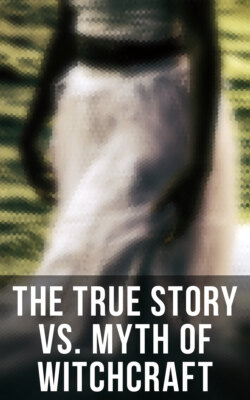Читать книгу The True Story vs. Myth of Witchcraft - William Godwin - Страница 114
На сайте Литреса книга снята с продажи.
Dido.
ОглавлениеWe have a more detailed tale of necromancy, when Dido, deserted by Aeneas, resolves on self-destruction. To delude her sister as to her secret purpose, she sends for a priestess from the gardens of the Hesperides, pretending that her object is by magical incantations again to relumine the passion of love in the breast of Aeneas. This priestess is endowed with the power, by potent verse to free the oppressed soul from care, and by similar means to agitate the bosom with passion which is free from its empire. She can arrest the headlong stream, and cause the stars to return back in their orbits. She can call up the ghosts of the dead. She is able to compel the solid earth to rock, and the trees of the forest to descend from their mountains. To give effect to the infernal spell, Dido commands that a funeral pyre shall be set up in the interior court of her palace, and that the arms of Aeneas, what remained of his attire, and the marriage bed in which Dido had received him, shall be heaped upon it. The pyre is hung round with garlands, and adorned with branches of cypress. The sword of Aeneas and his picture are added. Altars are placed round the pyre; and the priestess, with dishevelled hair, calls with terrific charms upon her three hundred Gods, upon Erebus, chaos, and the three-faced Hecate. She sprinkles around the waters of Avernus, and adds certain herbs that had been cropped by moonlight with a sickle of brass. She brings with her the excrescence which is found upon the forehead of a new-cast foal, of the size of a dried fig, and which unless first eaten by the mare, the mother never admits her young to the nourishment of her milk. After these preparations, Dido, with garments tucked up, and with one foot bare, approached the altars, breaking over them a consecrated cake, and embracing them successively in her arms. The pyre was then to be set on fire; and, as the different objects placed upon it were gradually consumed, the charm became complete, and the ends proposed to the ceremony were expected to follow. Dido assures her sister, that she well knew the unlawfulness of her proceeding, and protests that nothing but irresistible necessity should have compelled her to have recourse to these unhallowed arts. She finally stabs herself, and expires.
